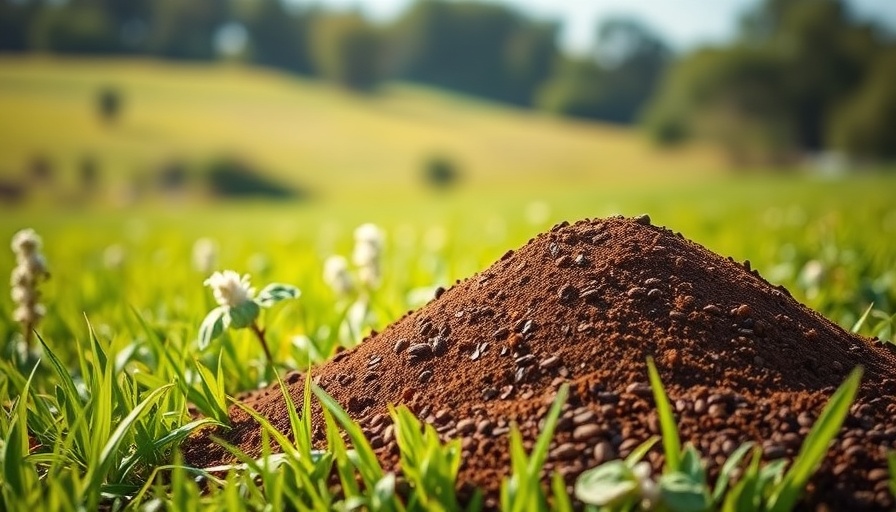
The Intersection of Coffee and Gardening: A Unique Connection
For many, the ritual of brewing that first cup of coffee is as vital as the lavender-scented environment of a flourishing garden. But what if I told you that your morning brew could also benefit your plants? Coffee grounds, often labeled a gardening miracle, are more than just trash. Let's explore how these humble grounds can give your plants a little extra love and care.
Understanding the Benefits of Coffee Grounds for Plants
Coffee grounds are often celebrated for their nitrogen-rich content, providing a boost of nutrients crucial for plant health. With 10% nitrogen, they serve as an excellent addition to compost, enhancing the overall nutrient profile of the soil. When incorporated into your compost pile, they can work wonders, supplying the necessary greens to balance out browns like dried leaves, cardboard, and straw.
Furthermore, coffee grounds can enhance the microbial activity in the soil, attracting beneficial organisms that are vital for maintaining healthy plants. This organic material improves water retention and soil structure, which is critical during the hotter months when plants need all the help they can get to thrive.
What Plants Love Coffee Grounds?
So, which plants appreciate the magic of coffee grounds? Acid-loving species like azaleas, rhododendrons, blueberries, and roses thrive on these nutrient-rich additions. Others, like carrots, radishes, and even indoor plants such as peace lilies, can also benefit from their presence. However, it's essential to use them judiciously; avoiding over-compaction is crucial, so it's best to mix them with other mulch or compost materials.
Feeling Inspired? Tips for Using Coffee Grounds
When you're ready to integrate coffee grounds into your gardening routine, remember a few things:
- Composting is Key: Use aged or composted coffee grounds for better results.
- Mix it Up: Combine coffee grounds with other organic materials to prevent compaction.
- Limit Usage: Ensure coffee grounds don't exceed 20% of total compost contents to maintain balance.
Combating Common Misconceptions
A misconception often heard is that coffee grounds cause soil acidity. While coffee itself is acidic, the grounds neutralizes in the soil over time, showing a range of pH levels from neutral to slightly acidic. This means that while they can benefit acid-loving plants, those in need of alkaline conditions may require additional amendments.
Local and Global Perspectives: A Community Craft of Gardening
There’s a vibrant community of local gardeners eager to share their experiences with coffee grounds. Urban gardeners in city plots champion methods of creating nutrient-rich soils from everyday waste, forging a path for organic gardening practices. This grassroots movement not only promotes sustainability but also fosters connections between individuals who share a passion for nature and healthy living.
Conclusion: Take Action for Your Garden
As you sip your morning coffee tomorrow, consider giving your used coffee grounds a second purpose. By incorporating them into your gardening routine, you’re not just eliminating waste; you’re nurturing your plants and contributing to a healthier garden ecosystem. So go ahead, embrace this unique horticultural practice!
 Add Row
Add Row  Add
Add 




Write A Comment